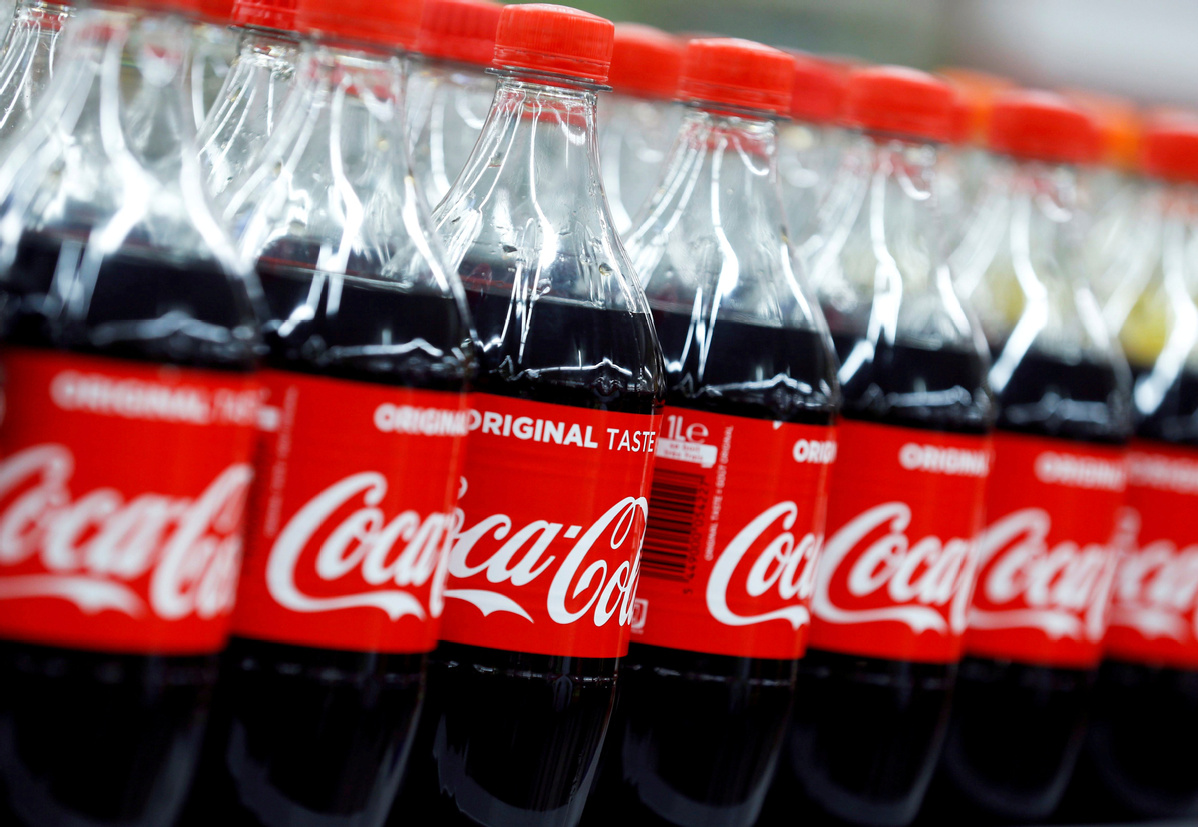Dietary guidelines: No sugar, alcohol revisions
By AI HEPING in New York | China Daily Global | Updated: 2020-12-31 11:20

The association that represents US beverage makers, including Coca-Cola and PepsiCo, is happy. And so is the alcohol industry.
New dietary guidelines issued by the US government Tuesday are being lauded by both groups for not changing recommended intake levels of added sugars and alcohol.
The "Dietary Guidelines for Americans" are updated every five years. They have an impact on Americans' eating habits, influencing food stamp policies and school lunch menus and even affecting how food manufacturers formulate their products.
Last summer a scientific advisory committee of 20 academics and doctors recommended that the guidelines encourage Americans to make drastic cuts in the consumption of sugars added to drinks and foods to 6 percent of daily calories, from the currently recommended 10 percent, citing rising rates of obesity and the link between obesity and health problems like Type 2 diabetes, heart disease and cancer.
The committee also recommended lowering the limit for alcoholic beverages for men to one drink per day from two, matching the guidance for women.
But the new guidelines reject the advisory recommendations and keep current allowances for sugar and alcohol consumption unchanged.
The US Agriculture and Health and Human Services departments reviewed the committee's recommendations, which were released in July, and decided to not lower the limits because "the new evidence is not substantial enough to support changes to quantitative recommendations for either added sugars or alcohol", said Brandon Lipps, deputy undersecretary for food, nutrition and consumer services at the USDA.
He said that the new limits recommended by the scientific committee didn't meet a "preponderance of the evidence" standard required by law.
"The science tells us that good nutrition leads to better health outcomes, and the new dietary guidelines use the best available evidence to give Americans the information they need to make healthy decisions for themselves and their families," said Health and Human Services Secretary Alex Azar, in a statement.
For the first time, the guidelines include recommendations for babies and toddlers, both from the scientific committee. It is recommended that children under age 2 consume no added sugars, which are found in processed foods from soda to breakfast cereal.
Elizabeth Mayer-Davis, who chaired the federal committee's beverages and added sugars subcommittee, said that she was "disappointed that the dietary guidelines did not adopt the recommendation of 6 percent" as the limit for added sugars.
"I think it is a lost opportunity for a stronger public health message," said Dr Mayer-Davis, chair of the department of nutrition at the University of North Carolina at Chapel Hill.
The scientific committee's proposed new limits were lobbied against by food industry groups. Asked if pressure from business groups had played a role in the government's decision, Lipps told The Wall Street Journal, "to the extent that stakeholders provided input about whether the science was being properly reviewed, we took that into consideration".
He noted that the government received more than 106,000 comments from the public. "We committed to issuing guidelines based on sound science in an open and transparent process. We believe that at the end of the day, that's what we did," he said.
The American Beverage Association, which represents drink makers including Coca-Cola and PepsiCo, urged the government to keep the 10 percent added-sugars limit during a public meeting in August.
























